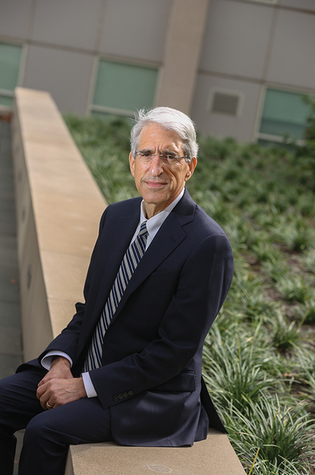 loading
loading
President's LetterFostering opportunity Mark OstowThe Yale Alumni Magazine publishes a letter from President Peter Salovey ’86PhD in every issue. In this letter, the president discusses the recent decision to increase Yale’s voluntary payments to the City of New Haven. View full imageSince we first met as graduate students at Yale, my wife Marta and I have made New Haven our home. Over the past four decades, we have seen the city change and grow in wonderful ways. One constant is that the Elm City has always been a vital part of what makes Yale an exciting place to live, work, and study. That is why, as a longtime resident, I am especially proud to share new initiatives that will foster opportunity and further strengthen Yale’s enduring partnership with New Haven. The principal elements of the plan, which I announced with Mayor Justin Elicker ’10MEM/MBA, include a significant increase in the university’s annual voluntary financial contribution to New Haven and a collaboration to help generate inclusive economic growth. Yale’s partnership with New Haven is unique in the United States. We have long made the largest annual voluntary contribution of any college or university to its home city in the country. By increasing our contribution by $52 million over six years, we are making a statement about our support today and into the future. When combined with Yale’s existing voluntary payments, Yale will contribute approximately $135 million to the city over a six-year period. The university also announced a new commitment to offset—fully, in the initial years—the loss in tax revenues for any properties Yale takes off the tax rolls in the next six years. These properties advance Yale’s teaching and research missions, create jobs, and fuel entrepreneurship. Through this innovative approach, we will support Yale’s strategic growth—a long-term benefit to the city—while ensuring New Haven does not lose out on tax revenue in the short term. The timing of this action is noteworthy. When combined with larger contributions from the State of Connecticut through the recently restructured Payment in Lieu of Taxes (PILOT) program, increased federal funding, and new investment from the private sector, Yale’s enhanced support will make a real difference in the lives of New Haven residents, today and for years to come. America’s cities face a host of challenges, many of which were exacerbated by the COVID-19 pandemic. In addition to financial support, Yale can help develop creative, evidence-based solutions to these problems. The new Center for Inclusive Growth, established with $5 million in Yale funding, will research and implement strategies in collaboration with city officials for growing the city’s economy to the benefit of all New Haven residents. I have asked Kerwin Charles, the Indra K. Nooyi Dean and Frederic D. Wolfe Professor of Economics, Policy, and Management at the Yale School of Management, to help launch this effort, supported by an advisory committee of university, city, and community leaders. By bringing Yale’s scholarly strengths to bear on issues at our front door, the Center for Inclusive Growth will demonstrate the power of our partnership with the city in action. These new initiatives represent a major step forward in Yale’s commitment to New Haven, in addition to our ongoing investment in the city. Existing programs include the Yale University Homebuyer Program, which strengthens neighborhoods by helping employees purchase homes in New Haven, and New Haven Works, which connects qualified residents to good job opportunities. Enrichment programs like Yale Pathways to Science and New Haven Promise, a scholarship program for the city’s public school students to attend any university in Connecticut, present invaluable opportunities for local young people. These existing initiatives, along with many others, represent more than $100 million in support over the next six years, in addition to $140 million in new funding just announced. We stand at an historic moment for Yale and New Haven. I am confident Yale can serve as a national model—exemplifying how institutions of higher education can partner with their home cities to serve the greater good. Marta and I join with our neighbors as we look forward to helping write the next chapter in our shared history.
The comment period has expired.
|
|